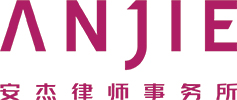Anti-suit injunctions are a tool used in the English legal system to protect arbitration in the country. Lawyers practising under English law have often applied for anti-suit injunctions on grounds that the arbitration clause in the voyage charter is validly incorporated simultaneously into the bill of lading, thereby forcing Chinese importers and their cargo insurers to relinquish the jurisdiction of mainland courts in bill of lading disputes and gaining favourable negotiating conditions.

Partner
AnJie Law Firm
The Chinese legal environment has very limited measures to oppose anti-suit injunctions. Whether the Measures for Blocking the Inappropriate Extraterritorial Application of Foreign Laws and Measures can become a basis for opposing anti-suit injunctions remains to be seen.
Q: What is an anti-suit injunction under English law?
A: Anti-suit injunctions, which originated in ancient equitable remedies, were initially used by courts to prevent parties from litigating in general courts and, by the 19th century, were invoked to prevent parties from litigating in the courts of other countries. The conflicting findings of courts in different jurisdictions regarding jurisdiction over substantive disputes are at the root of the anti-suit injunction system. It is generally thought that an anti-suit injunction is an order issued by a court against a party with jurisdiction to restrain that party from instituting a legal action in a foreign court as the plaintiff, and that violation of such an injunction will constitute contempt of court, which can expose the party in question to coercive measures in the jurisdiction where such injunction is recognised and enforced.
Q: Do the measures apply when a domestic party is subjected to an anti-suit injunction?
A: The answer is “yes” in light of the wording of article 2 of the measures. On the one hand, the Chinese party’s selection of a competent Chinese court to institute a legal action is a remedy necessary to participate in business activity and does not exceed the scope of “normal business and related activities” between parties. On the other, an anti-suit injunction takes the law of the country in question as the benchmark and deems that the court of another country has accepted a case which it is not entitled to accept, and therefore intervenes. In practice, anti-suit injunctions have not been widely recognised by the courts of other countries; for example, in Allianz SpA v West Tankers Inc (Case C-185/07) in 2009, the European Court of Justice held that the anti-suit injunction rendered by the English court constituted interference with the judicial sovereignty of a foreign court and conflicted with the Brussels Treaty.
It is important to note that the measures limit the affected economic and trade related activities to those between parties from China and a third country.

Partner
AnJie Law Firm
Q: What are the specific obligations of a domestic party under the measures?
A: They include the obligation to report and the obligation to block (prohibit compliance). The former is based on article 5 which requires a Chinese party to truthfully report relevant information to the State Council’s commerce authority within 30 days after being subjected to an anti-suit injunction, where the “being subjected to” here can seemingly be understood as the anti-suit injunction having been validly served based on the applicable law. The latter is based on article 6 or article 7, after an anti-suit injunction issued on the basis of foreign law, all domestic parties affected by the injunction, such as Chinese importers or insurers of goods, are prohibited from recognising, enforcing and complying with the injunction’s requirements. In theory, the consequences of breaching the foregoing statutory obligations include civil liability and administrative liability.
Pursuant to article 9, civil liability is required to satisfy the conditions for constituting tort liability, whereas, pursuant to article 13, administrative liability may include a warning, an order to rectify the matter within a specified period of time and/or a fine. However, it is a party’s right whether to institute a legal action or arbitration proceedings. If a party does not institute any legal action or arbitration proceedings or selects a competent arbitration tribunal, it will, for all intents and purposes, be in compliance with the requirements of the anti-suit injunction, but also cannot simply be found to be in violation of a Chinese administrative prohibition.
Q: What possible risks could a domestic party performing its obligations under the measures face and what are the remedies available to it?
A: If a party violates an anti-suit injunction under English law, the safety of its property and personnel abroad could be jeopardised. In most cases, domestic parties will be pressured to make concessions and settle. The exemption system provided for in article 8 is designed to assist Chinese parties in averting legal risks abroad, and as settling by parties does not violate anti-suit injunctions under English law, there is no scenario in which the exemption system could be applied. If a party insists on litigating in China, the measures do not provide any clear administrative means to counteract a foreign party that applies to a foreign court for an anti-suit injunction.
The administrative liability provided for in the measures is aimed solely at Chinese parties, and there is no basis for taking coercive action against the personnel or property in China of a foreign party. Although the measures provide for the right to claim damages against foreign parties, such right must still be exercised through judicial means in China, and how to evidence losses as well as service and enforcement remain difficult in reality, perhaps requiring an application to a court for act preservation.
In Huatai Property Insurance Shenzhen Branch v Clipper Chartering S.A., a dispute over a contract for the carriage of goods by sea, the ruling ([2017] E 72 Xing Bao No. 3) of the Wuhan Maritime Court orders the latter to apply to the High Court of Hong Kong for the withdrawal of anti-suit injunction No. HCCT28/2017. However, when the shipowner violated the ruling of the Chinese court, the questions of whether the vessel could be arrested and how to allocate liability were not clarified. Of greater value are Huawei v Conversant patent disputes in which the Supreme People’s Court specified that violation of the act preservation ruling by the respondent constituted ongoing obstruction of a civil procedure.
Yan Bing and Chen Lei are partners at AnJie Law Firm

19/F Tower D1, Liangmaqiao Diplomatic Office Building
19 Dongfang East Road
Chaoyang District
Beijing 100600, China
Tel: +86 10 8567 5988
Fax: +86 10 8567 5999
E-mail:





















